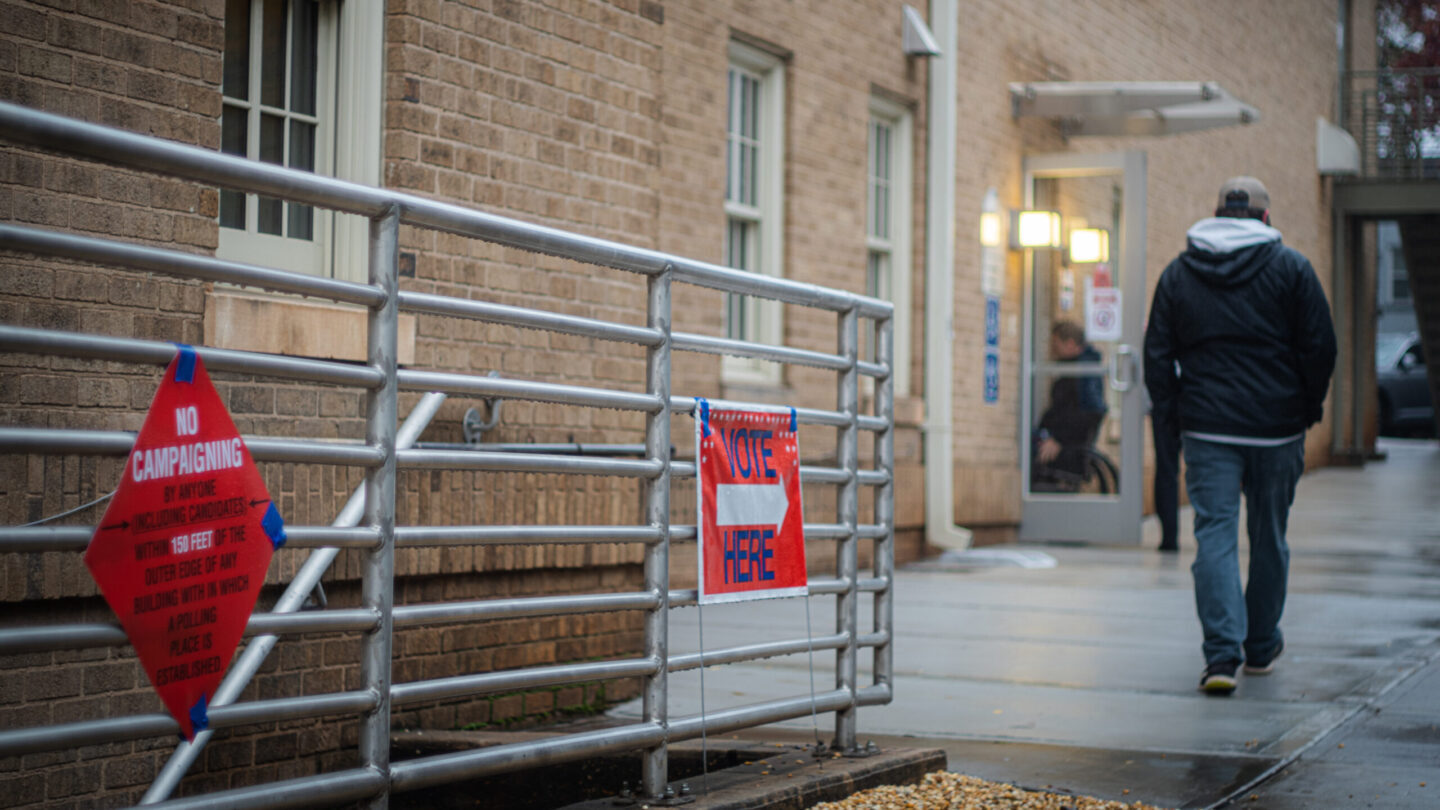Here’s what you need to know about the respective measures.
Georgia Amendment 1: Statewide exemption to local homestead tax
Georgia Amendment 1 would implement a statewide exemption to the local homestead tax that uniformly applies to all counties, local school systems, consolidated governments and municipalities unless they opt out.
The measure would amend Article VII of the Georgia Constitution, which addresses state taxation and finances. The Georgia House of Representatives passed and adopted House Resolution 1022 unanimously, and the Georgia State Senate passed the resolution by 42-11.
The statewide exemption would freeze the values of all homesteads in Georgia based on a yearly assessment of consumer price index, meaning that the value of a home would go up the same percentage as the value of a home in a different part of the state.
According to Republican State Rep. Beth Camp, the amendment would create a lot more uniformity across the state and continuity from year to year. Camp said she received complaints from people who didn’t understand why they were paying a lot more in taxes when the property tax millage rate in their counties didn’t go up.
“There are, unfortunately, some counties that have opted not to do assessments until basically they’re in a lot of trouble because they’re paying fines, and then when they have to actually do the assessment, it goes up so exponentially that it’s caught everyone very off guard, especially lower income or retirees who were not anticipating these huge spikes,” Camp said.
In these cases, residents would not be able to complain about the hike in taxes because the increase came not from the millage tax rate itself, which residents could appeal at a public hearing, but from the property value assessment.
Camp said she hopes the amendment would allow homeowners to feel they have more control over the tax they pay.
“I honestly think that it would benefit so many people, and not only financially, but I think we have kind of a complicated property tax system with millage rates. A lot of people don’t fully understand,” the state representative said.
“The public would have more of a voice if they truly understood going to a property tax meeting and complaining about the assessment is kind of moot because the assessment has already happened,” she added. “I’m hoping this provides a lot more transparency to the process for everyone, so property owners have more of a voice in the taxing process.”
Though the amendment may curb tax increases for existing homeowners, Atlanta-based property tax attorney Sara Sorenson said once people sell their homes, property taxes would be calculated according to the property’s actual value, meaning that new homeowners would not see any discount when they buy a home. Landlords also don’t qualify for the exemption.
Moreover, Sorenson added that a cap on property tax increases could translate to an increase in sales tax to make up for lost government revenue.
“I think that it’s important to remember that property taxes usually fund a significant part of the budgets of local cities, counties and school districts,” Sorenson said. “And when you start capping that revenue, the revenue has to come from somewhere else.”
The Georgia Budget and Policy Institute publicly stated their opposition to Amendment 1, saying that decreasing property taxes would result in a decrease in funding for public goods and services, such as public school funding and teacher salaries.
GBPI President and CEO Staci Fox told WABE that local governments and law enforcement could rely on other ways to make up for the loss in revenue, such as stronger enforcement of traffic tickets and fines. She added that a constitutional amendment is not the proper forum to create tax policy.
“When we put things into the constitution, they’re permanent and very hard to undo,” she said.
Fox advocated for an overhaul of the funding system for public schools so that schools would be less reliant on property tax revenue and be more equitably funded across different municipalities. That way, local governments could address high property tax without jeopardizing funding for schools.
Georgia Amendment 2: Tax court in the judicial system
Georgia Amendment 2 would create a tax court with statewide jurisdiction that would be concurrent with superior courts. Right now, the tax tribunal that hears tax cases is in Georgia’s executive branch, so Amendment 2 would establish a court in the judicial system.
Currently, the Fulton County Superior Court hears appeals to any tax tribunal cases. However, according to Georgia State Rep. Chuck Martin, the superior court is not meant to be an appellate court and does not specialize in tax law. The amendment would ensure that the Georgia Court of Appeals would hear an appeal to a tax case decision.
“It unburdens the superior court in terms of time, it guarantees the proper look at an appeal, and it puts it in a venue that is used to operating in an appeals format,” he said.
If passed, the measure would amend Article VI of the Georgia Constitution, which dictates the state’s judicial system. The Georgia House unanimously voted to adopt House Resolution 598 on Feb. 27, and the Georgia Senate adopted the resolution nearly unanimously on March 20.
Martin said he expects the amendment to pass in November.
“I think it’s taxpayer-friendly. It’s citizen-friendly,” he said. “None of the rules of evidence change, so this doesn’t change anything about how the court views specific matters. This is purely an operational issue to clarify, simplify and speed up the process so that the citizens get access to complete and full due process.”
Atlanta-based tax attorney Jeffrey Cohen, who has served as the chair of the Georgia State Bar Section of Taxation, said he was “deliriously happy” when he first heard about H.R. 598.
He said his firm won a case with the tax tribunal a few years ago, but the state’s appeal to that case still has not been scheduled and docketed by the Fulton County Superior Court.
“That’s a very busy court, and we get in line behind all the other cases that Fulton County Superior Court might have,” he said. “As you might imagine, there’s cases of all types.”
In addition, Cohen said the Georgia Court of Appeals tends to have clerks and attorneys who better understand tax law.
“I would be surprised if any attorney would oppose this,” he said of the proposed amendment.
Georgia Referendum A: Tax exemption for tangible personal property
Finally, Georgia Referendum A would increase a property tax exemption for tangible personal property worth $7,500 or less to properties worth $20,000 or less.
Members of the Georgia General Assembly co-sponsored House Bill 808 to alleviate tax burdens on tangible personal property such as office supplies and equipment. The Georgia Senate unanimously approved H.B. 808 on March 26.
Georgia last raised the maximum threshold for a tangible personal property tax exemption in 2002, when voters passed Referendum E to raise the limit from $500 to $7,500.
Republican State Rep. Mike Cheokas, one of the bill’s sponsors, said Referendum A is trying to relieve the burden of inflation and the effects of COVID-19 on small businesses. Businesses already pay sales tax on equipment like computers, machines and office supplies, which have increased in price over the years.
“They’ve already paid a tax, so now they’re having to pay a continued tax on something that’s already been taxed,” he said.
As chairman of the Small Business Development Committee in the Georgia House, Cheokas said people with small businesses raised the issue of raising the tax exemption limit with him, leading him to push for the referendum.
“There was a lot of support from the business community in favor of this. A lot of support. And we’re talking about mom-and-pop operations. Twenty-thousand dollars to General Motors is nothing, but for the one- or two-man accounting firm or for the single practice attorney or for the guy that does lawn work and he’s got to buy a new lawn mower, this is important for the small business owner,” Cheokas said.
Fox, the GBPI president and CEO, said a similar problem faces Referendum A as does Georgia Amendment 1, in that a decrease in tax could lead to a decrease in funding for public education and other services. She acknowledged the needs of small businesses but advocated for an approach that she said would not also benefit bigger businesses at the expense of public services.
WABE’s Stephannie Stokes and Rebecca Etter contributed reporting to this story.










